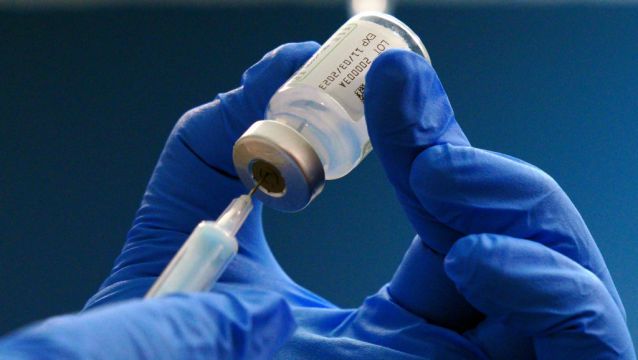Parents were being urged to cocoon young babies to help limit the spread of RSV (respiratory syncytial virus) and flu infections, which the HSE warned were currently circulating at very high levels.
In the last week, there has been a 60% increase in the number of confirmed flu cases and a doubling of the number of patients who require admission to hospital due to flu.
There were 829 new cases of RSV and 283 new cases of flu last week, as well as 23 outbreaks of respiratory illness across the health service.
It was the highest weekly number of cases of RSV and the highest weekly hospitalisations caused by RSV in Ireland, and this year’s peak has surpassed that of 2022.
Children under the age of four, the elderly and the vulnerable are most affected.
The HSE urged the public to also cover their coughs as part of respiratory hygiene and make sure all their vaccines, including flu and Covid-19, were up to date.
Dr Greg Martin, national clinical lead for Health Protection Surveillance, said: “Most cases of RSV and flu can be cared for at home, and usually clears between two to three weeks without treatment. Stay home from creche, school or work and ask your pharmacist for advice on medicines.
“However, parents and caregivers should be vigilant of symptoms, trust their instincts and always contact their GP if they are worried, especially if the symptoms get worse quickly.”
Dr Abigail Collins, national clinical lead for the HSE’s Child Health Public Health Programme, said the best advice for parents “comes back to respiratory etiquette” by covering coughs and sneezes, alongside regular hand washing.
“All very important to limit the spread of respiratory illness. We advise people with babies, particularly very young babies, to try to cocoon them and avoid having them in large crowds, or near people with cold and respiratory symptoms,” she said.
“If your child is sick, keep them away from other children and vulnerable adults where possible.”
Symptoms of an RSV infection start like a cold and can include cough, wheezing, runny nose, difficulty feeding or decreased appetite, fever (temperature of 38C or higher), and sore throat.
These symptoms usually appear in stages and not all at once.
After four to five days, babies and young children can develop bronchiolitis. Their symptoms may get worse and include increased breaths per minute, wheezing, difficulty feeding, and fewer wet nappies.
These symptoms often remain for three to four days before slowly getting better.
It can usually take 10 to 14 days before babies and young children recover from an RSV infection.
Many babies and children may have a cough that lasts for weeks after the start of the infection. The HSE said this does not need antibiotics.
Flu symptoms can also start with a cough or a cold and include a high temperature of over 38C, aches and pains, tiredness, sore throat and headaches.
Parents are asked to keep children with other symptoms of flu at home for at least five days after their symptoms begin.







